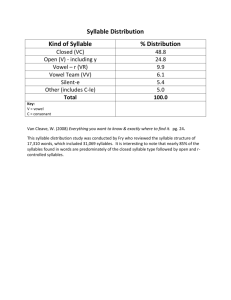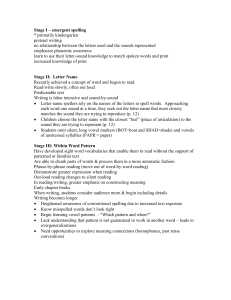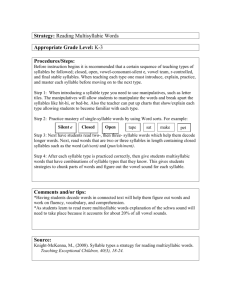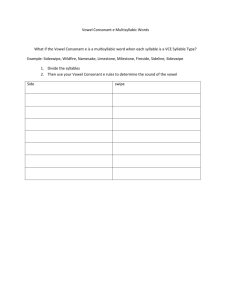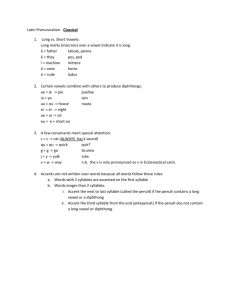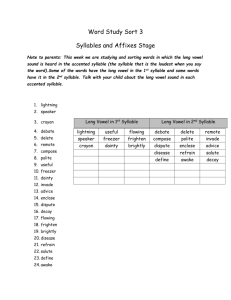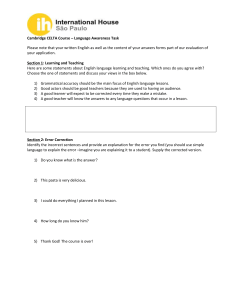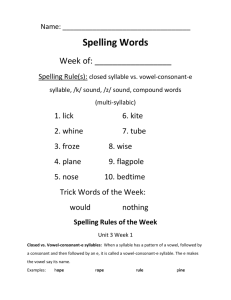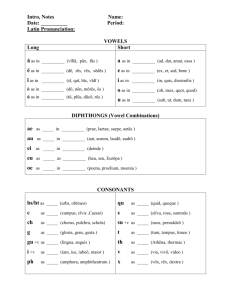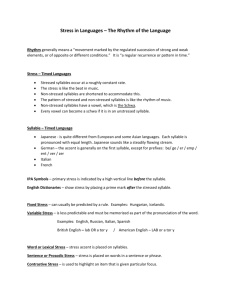Multisyllabic Word Reading
advertisement
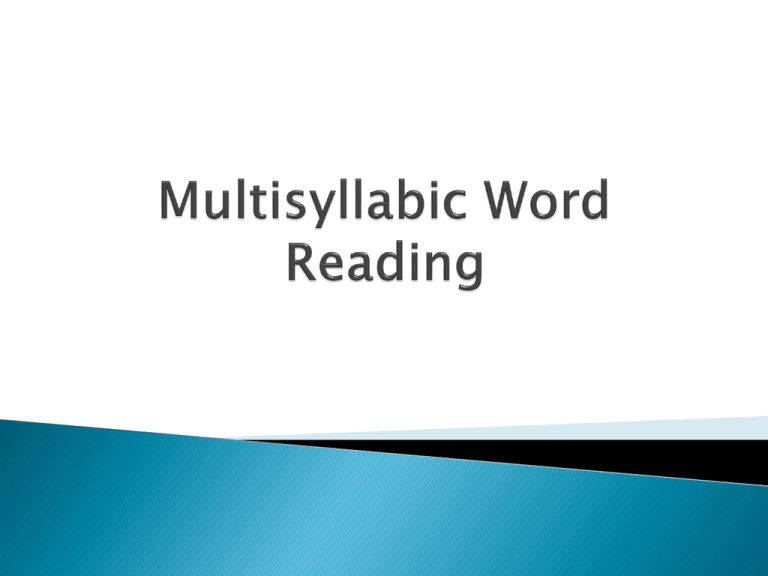
Why is instruction of multisyllabic words important? Many big words occur infrequently, but when they do occur they carry much of the meaning and content of what is being read. -Cunningham, 1998 From 5th grade on, the average student encounters about 10,000 new words each year. Most of these words are multisyllabic. Poor readers often identify multisyllabic words inaccurately by processing the letters within words, rather than the syllables. Instruction can begin as soon as students have mastered the decoding of single syllable words. Other prerequisites include the ability to: ◦ pronounce common sound/spelling correspondences, especially vowel spelling combinations ◦ identify open and closed syllables ◦ pronounce affixes in isolation Closed syllables-a syllable ending in one or more consonants and having a short-vowel sound spelled with one vowel letter. Ex) picnic Affixes-are bound morphemes. This group of word parts includes prefixes and two kinds of suffixes. Fold a paper into fourths. Print the letter m in the first fourth and the letter e in the second fourth. Then, fold over the last fourth (it will cover the third fourth) and print the letter n in it. m e Tell students that every syllable has only one vowel sound. Fold over the paper flap with the letter n to show the word men. Say: The door is closed. Ask: What’s the word? (men) Right. This one-syllable word is men. The consonant at the end of this word tells me that this is a closed syllable. In a closed syllable, a consonant “closes in” the vowel and the vowel sound is short, just as you read it. Point to the letter e in men. Say: This letter stands for/e/. Point to men and say: Let’s say the word again. m e Now, unfold the paper flap, or “open the door,” to reveal the word me. Say: I just opened the door. Ask: What’s this word? (me) Say: Right. This one-syllable word is me. The single vowel at the end tells me that this is an open syllable. In an open syllable, the vowel sound is the same as the name of the letter; or long. Point to the letter e in me. Say: This letter stands for/ē/. The letter’s name is the same as its sound. Point to me and say: Let’s say the word again. m e pa re al em pal rem ri hu im un rim hun fa ro an oth fan roth pi em Introduce a word gorilla 2. Count the syllables in the word /gor/ /il/ /la/ 3. Spell each syllable gor il la 4. Compare and correct gorilla 1.

